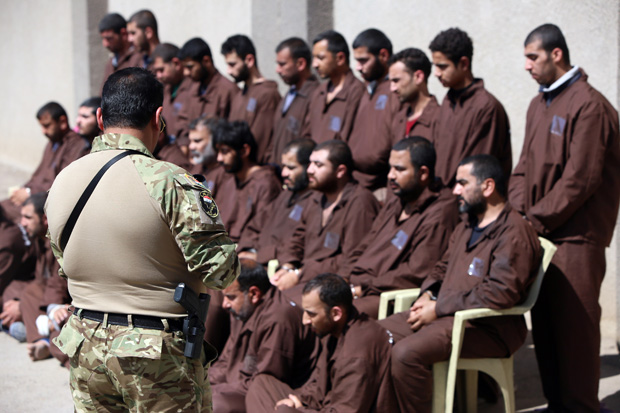Diane’s farewell message
After 52 years at WAMU, Diane Rehm says goodbye.

A member of Iraqi secruity forces (L) guards 31 suspected Islamic State group members at the Iraqi Intelligence service's headquarters in Baghdad on March 16, 2015.
Last August, ISIS released a video showing the brutal beheading of journalist James Foley. With this act, ISIS came to the attention of much of the world. But the terrorist group that seemed to spring out of nowhere has its roots in Iraq and the U.S. invasion. Once a part of Al Qaeda, ISIS went on to sharply differentiate itself from central command. In a new book, “ISIS: State of Terror,” two experts on terrorism say ISIS’s tactics – including their use of violence and their manipulation of social media – is unprecedented and will permanently alter the way terrorist groups operate in the future. Co-authors Jessica Stern and J.M. Berger join Diane to discuss the history, evolution and reach of ISIS.
Adapted from ISIS: The State Of Terror. Copyright © 2015 by Jessica Stern and J.M. Berger. Excerpted by permission of Ecco Books, a division of HarperCollins Publishers. No part of this excerpt may be reproduced or reprinted without permission in writing from the publisher.
After 52 years at WAMU, Diane Rehm says goodbye.
Diane takes the mic one last time at WAMU. She talks to Susan Page of USA Today about Trump’s first hundred days – and what they say about the next hundred.
Maryland Congressman Jamie Raskin was first elected to the House in 2016, just as Donald Trump ascended to the presidency for the first time. Since then, few Democrats have worked as…
Can the courts act as a check on the Trump administration’s power? CNN chief Supreme Court analyst Joan Biskupic on how the clash over deportations is testing the judiciary.